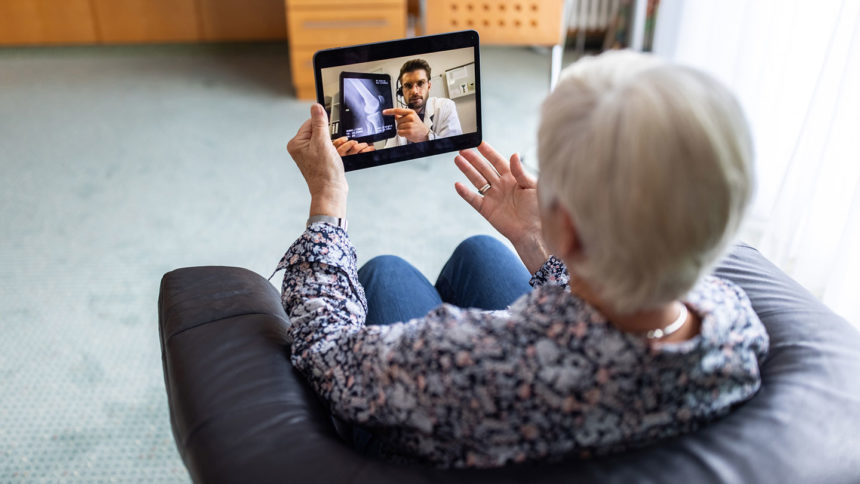
Therapy groups serving long-term care and other institutional providers were left hanging Thursday as the public health emergency officially lapsed and federal regulators still had not given clarification on whether certain telehealth practices would still be allowed.
The Centers for Medicare & Medicaid Services had told Advion (formerly NASL) and its seven fellow therapy coalition members it might issue guidance by Thursday but it did not. In question is beneficiary access to remote physical and occupational therapy and speech-language pathology service.
The Consolidated Appropriates Act of 2023 directed CMS to extend beneficiary access to therapy delivered via telehealth through Dec. 31, 2024. But therapy providers said they need specific guidance. They questioned whether beneficiaries would continue to have access to their services “when furnished by an institutional provider such as a hospital outpatient therapy department, skilled nursing facility, home health agency or outpatient rehabilitation facility.”
“This is really a patient access issue because if there is not a therapist in the area that can travel to the facility, and telehealth is not available, then the nursing home is hard pressed to be able to provide rehab therapy and the patient may not receive the services timely,” Advion Executive Vice President Cynthia Morton told McKnight’s in an email Thursday.
As of Thursday, it was still not clear whether therapists may utilize telehealth to bring their services into a facility, she said. Patients could have to “wait days or even a week in order to get rehab services.”
After the pandemic hit and in-person access became restricted at facilities, CMS granted telehealth and a variety of other waivers to enable more contact between therapists and clinicians and their patients. With the expiration of the PHE Thursday, many of the waivers that had not already lapsed ended.
“With the workforce shortage of therapists in long-term care, this ability [to visit via telehealth] has made enormous difference for patients, especially in areas of the country, often rural areas, where there are frankly, few to no therapists,” Morton said.
Therapists can use telehealth to evaluate a patient.
“This important ability allows the course of therapy to begin,” Morton explained. “If this telehealth ability is eliminated, given the shortage of rehab therapists that we have in our sector, patients are going to have to wait until a therapist can travel to their facility in order to conduct the evaluation of the patient. This is a patient access issue, plain and simple.”
The coalition’s joint statement noted that according to the Medicare Payment Advisory Commission, 63% of Medicare outpatient therapy services are furnished by institutional providers.
“This uncertainty of benefit eligibility and absence of billing guidance prior to the expiration of the PHE means that many seniors may have necessary care interrupted, have the initiation of care delayed, or be denied access to therapy care entirely, especially in rural and underserved areas,” the coalition wrote. “We urge CMS to address this situation immediately, and we urge members of Congress to ask the agency to provide clear guidance on the legislation enacted that was intended to assure seamless beneficiary access to therapy services via telehealth through 2024.”
In addition to Advion, members of the coalition are the Alliance for Physical Therapy Quality and Innovation, the American Health Care Association, the American Occupational Therapy Association, the American Physical Therapy Association, the American Speech-Language-Hearing Association, APTA Private Practice, and the National Association of Rehabilitation Providers and Agencies.




